Lately we’ve been getting some pretty dismal news about the upcoming solar cycles and the potential for a pretty dismal trend according to some researchers.
We report this news on the SWLing Post because the sun and space weather play an important role in radio signal propagation and one’s ability to snag elusive DX.
After publishing news items like this, though, I always receive a number of emails and comments stating that these trends surely marks the end of all radio fun. After all, if there are no sun spots whatsoever, why bother!?!
Truth is, it’s sort of like saying, “the weather looks lousy, I don’t think I’ll be able to have fun.”
I lived in the UK for several years. If I let the potential for lousy weather stop me from having fun, I’d have never gotten anything done!
The same goes for space weather in our radio world.
A couple weeks ago, I made a Parks On The Air (POTA) activation running 15 watts with the Elecraft KX3 into a simple 20 meter vertical in SSB mode. Even though propagation was poor, I logged a new contact, on average, once per minute over the course of 30 minutes! It was non-stop!
I also listened to the Midwinter Broadcast to Antarctica with two portable radios. Propagation was poor and I didn’t even use an external antenna…but I caught the broadcast and had a load of fun hanging out on the Blue Ridge Parkway!
My advice?
As I said in a post last year, use the sunspot low as an excuse to explore frequencies and modes you’ve never used before. Use this as an opportunity to improve your listening skills and the most important part of your listening post or ham station–your antenna system!
I often receive email from people who’ve found the SWLing Post and take the time to write a message to me complaining about the death of shortwave radio: the lack of broadcasters, the prevalence of radio interference and the crummy propagation. They wonder, “is it all worth it?”
My reply?
“Hey…sounds like radio’s not your thing!”
While this same person is moaning and complaining, I’ll be on the radio logging South American, Asian and African broadcast stations.
I’ll be working DX with QRP power, even though everyone tells me that’s not possible right now.
I’ll be improving my skill set and trying new aspects of our vast radio world.
You see: I’ve learned that the complainers aren’t actually on the air. They gave up many moons ago because someone told them it wasn’t worth it, or they simply lost interest. That’s okay…seriously…but why waste time complaining? Go find something else that lights your fire!
While these folks are complaining, I’ll be on the air doing all of the things they tell me I can’t do.
In the words of Admiral David Farragut: “Damn the torpedoes, full speed ahead!”
Go out there and play radio!

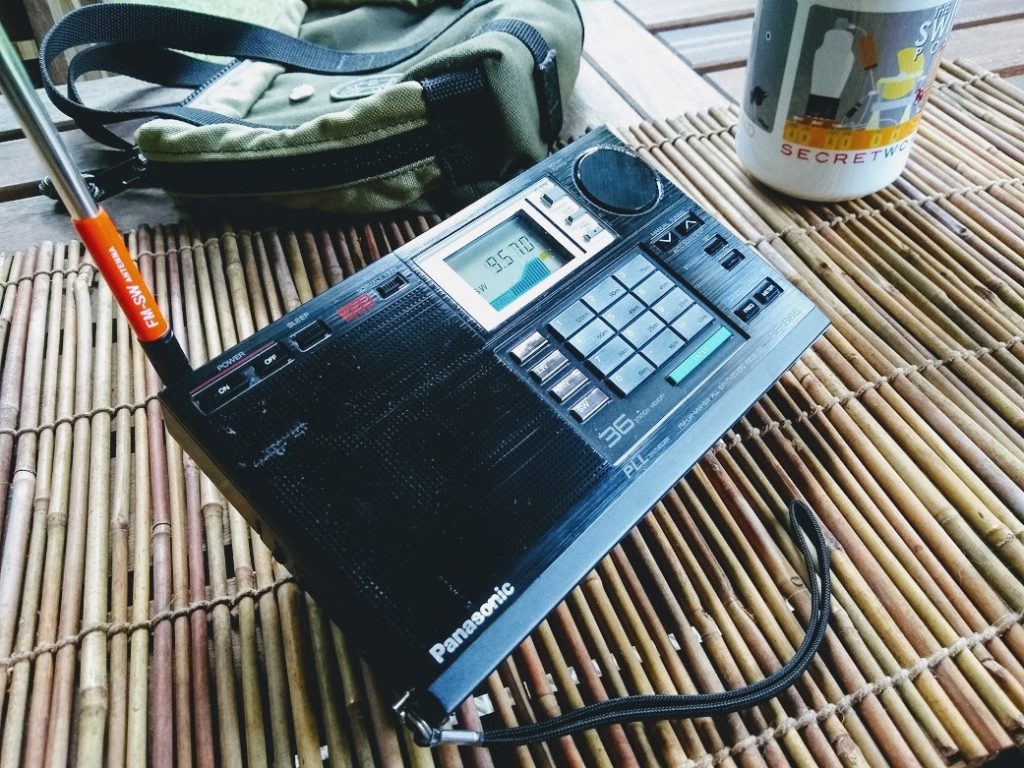
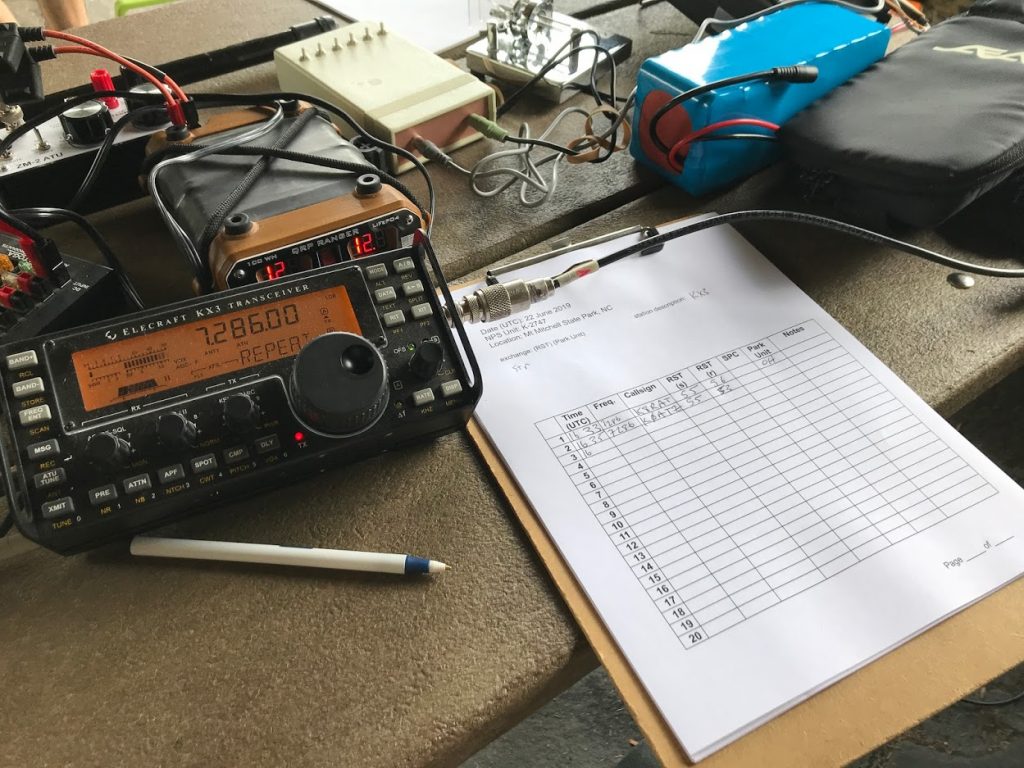
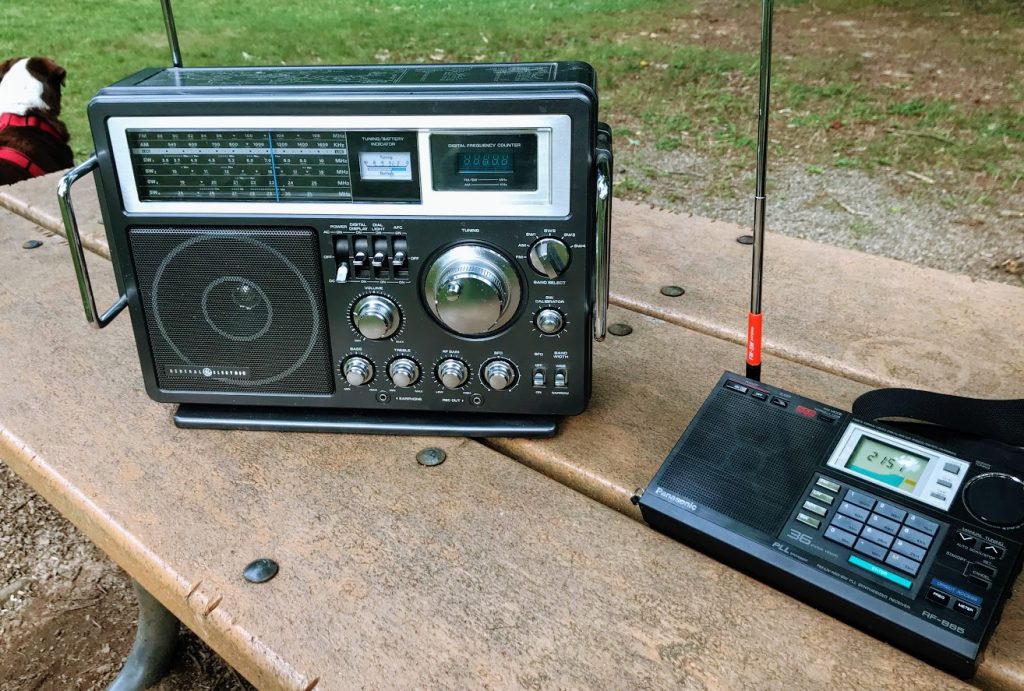
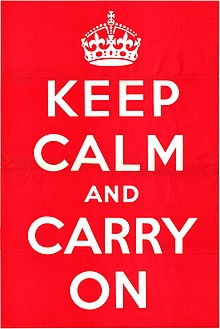
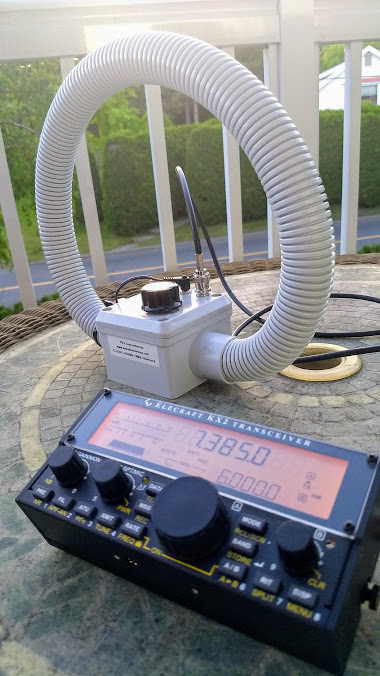
Even though it’s not as easy to get signals due to the solar minimum, I think it’s more fun since you have to bend your antenna and your ear to get more out of it. It really shows what radios and antennas you’ve bought/made are better than others. To me, radio DXing as a hobby is best treated like a test bed for all kinds of things. From just idle listening to your preferred stations or picking up those rare pirates on the air to homebrewing antennas and even building radios from kit. SWL by itself isn’t much fun in this era as so many stations are gone but it’s a spring board to bigger things with radio imo.
Actually it is just as easy. You just start using the lower frequencies instead. 160m has been great lately for me.
I couldn’t agree more. I left a comment in the “grand solar minimum” post, meaning to say the same or something similar – radio has so many sub-hobbies in the hobby you could focus on, or shift your focus to bands that actually benefit from a quiet sun and unless you always had optimum “working conditions” in the past there are likely many ways left to improve things and receive more stations than ever (above all, go places!), particularly if you can find the heart to learn about areas of the radio hobby radio you haven’t touched yet. Of course this requires a broad interest in radio, and I always want to encourage people to develop this. I’m into that stuff for more or less 45 years and I still didn’t try everything and often enough, when I thought “this must be boring” I found myself enjoying it a lot. Maybe just for a while, but it was fun nonetheless and there’s always something I didn’t even know it existed that may entertain me for the next few weeks or months. Like I tried to say in the other comment, solar cycle 24 was the worst in the history of radio (only cycle 14, the first cycle within the actual radio era was probably just as bad) and I even missed the maximum for the most part, yet it was the overall most interesting and successful cycle for me, because I could discover so many new things and accomplish more with improved gear in better locations.
On the other hand, I can see how some of the classic “program listeners” may have gotten the short end of the stick, or why they perceive their situation like this since one big famous (and usually high-power) foreign service in English was closed after the other. If you are not into the technical side of the hobby (so you could help yourself to hear all the still exisiting stations in the noise), if you are all about the content and don’t care about the medium, the physics, playing with technology or exploring the entire radio spectrum, you are probably more likely to grieve about the end of the hobby. That’s what it likely is for you then, the end of the tiny slice of “radio” you were enjoying. Except..this has very little to do with the sun and with a bit more antenna effort you may discover new stations that pop up once in a while, there are more music stations, more pirates and more opportunites in less congested bands. But I suspect it’s the change that some people can’t digest, there was a happy period of stagnation after radio had its heyday and that’s when many of us grew up, maybe not having much opportunity to learn that change is the very nature of radio since the day it was invented. I think that’s how Thomas’ reply “Hey…sounds like radio’s not your thing!” should be understood, because, well, maybe what you enjoyed and what you miss (or fear to miss) now wasn’t so much the “radio” part after all and what we all mean to say is “embrace the change, adapt, educate yourself, because there is so much more entertainment and activity to discover and enjoy in radio!”.
Unfortunately, a lot of people who like shortwave don’t care about the physics. It’s like every other hobby–the number who care about every aspect is smaller than the ones who like the hobby anyway. I’m a perfect example of this. I understand the physics, and the basic frameworks underpinning radio propagation are sort of interesting, but I didn’t start listening to radio because I needed more physics in my life. If I had wanted that, I’d have taken up physics as a hobby instead. I liked (and still do) the content put out by stations. This is one of the problems I have with your point–you seem to say that we really should be doing radio for the enjoyment of technical details, and otherwise we’re missing the real point. I can tell you that this argument isn’t going to convince me, and it will put off others who might be interested in joining the hobby.
Consider a parallel. I’m a software developer, and one thing that interests me is encoding and compression algorithms for data, including audio. This is a thing that many people find difficult to understand or deadly boring, but everyone needs to use these algorithms if they ever want to listen to audio on a computer. By the logic stated here, anyone listening to music online is “all about the content and don’t care about the medium”. I find this attitude baffling. Without the content, the medium would be a purely abstract physics concept. It’s the content that drew us in, even if we found the physics intriguing afterwards. If the content in the form of stations with content interesting to the general listener is demoted to “the tiny slice of radio” and it is presumed by the people into the hobby that this slice as they call it is dying, we will fail to attract anybody else. As I’ve stated yesterday, we will want others on this hobby to keep those tiny slices others enjoy from similarly atrophying as the current adherents decrease.
I have to agree with both Thomas’ blog post but also what Laurence had to say.
I definitely complain about HF band conditions compared to even 1 to 1-1/2 years ago but I have not given up HF at all! RNZI is indeed coming in well here and I’m very happy with that. Sri Lanka BC still comes in most nights which is great as I enjoy the music they play. I’ve taken to utility stations (mainly aero) and it is disappointing that I’m not hearing Dakar, Senegal anymore but Shannon is still coming through. And despite it not being NDB season it’s still fun looking for them. I’ve even been more motivated to get on the air from listening to amateurs from all over the world coming in.
However, Laurence is correct about petitions from listeners that don’t get anywhere with the powers that be. The loss of Radio Australia was worse for me than Radio Nederland, and if/when AIR pulls off shortwave… it IS more than a bit depressing.
There is still plenty to listen to on LW and SW (probably MW, too, but since everything seems to be network fed anymore I don’t bother now) and conditions will be improved in a year or two, probably greatly improved. I’ve actually been adding to my receiver lineup lately in anticipation. And Thomas has the right idea, take a portable (there are so many good ones) on the road, give your antenna some air (remember that one?) and get away from RFI. Local noise levels are far worse for HF radio than low sunspots. Something will always come through the ether, but you need to be able to receive it.
The excitement of shortwave radio has always been the thrill of slow band-scanning to see what may be received! For myself, I have been a SWL since 1977. I’ve used both vintage and modern receivers. At the present, I use 2 indoor loop antennas. Both give excellent results if you cannot erect an outside longwire due to apartment restrictions. So, just get out there and scan ALL the frequencies! There is always interesting music to be heard; if not trying to hear English programs!
What is your mag loop antenna? Is it home brew? It looks like a vacuum hose!
It’s the PK Loop! Here’s a review: https://swling.com/blog/2016/11/a-preliminary-review-of-the-pk-loop-c-loop-hdsw6-18/
Great article Thomas!
I’ve enjoyed SWLing with my PL660 for several years now. And to add to the fun, I recently joined an online “chatroom” for SWLers.
Now from my recliner radio shack, I have my laptop open to the chatroom on the left armrest and my PL660 on the right armrest. Multitasking forever!
If anyone is interested in the chatroom, here’s their mission statement:
We are http://hfzone.org/ and https://www.reddit.com/r/hfzone . This channel should be a vehicle for exchanging information about shortwave listening in general or anything related. One of us should be with you for any conversation and questions about shortwave and radio science. Please give everyone a chance to respond and conversate with you. I promise we will!
We do not support unlicensed transmission, please feel free to share unlicensed broadcasts though!
Join us on IRC as well irc.snoonet.org #hfzone
Add yourself to our location map! https://drive.google.com/open?id=1yl-NsPEwM4IC4BNPgKfc5e
You can consider me a new hobbiest swl since I started in 2014, I never listen to FM/AM anymore. I started when things were bad going to worse. I have heard more new good music in the last 5 years than the last 20 years in commercial US radio.
I tell everyone that will listen about shortwave radio, SW is radio, imperfect as it is, as far as the USA am/fm goes, there is almost nothing beyond mass consumption radio. Micro broadcasting= micro hyper/local audience.
Internet may be the future for some but just watch as the gov’t and co-orporations gain control of all major platforms and siphon the masses from anything that strays from the mainstream. We already see this happening.
Turning folks on to the shortwave radio is not easy, my friends live in high rf homes Iand will quickly tire if they don’t pull in something quick- the immediate gratification or give up sindrome. The younger generation has pretty much given up on radio because what they hear on radio does not reflect their thoughts or musical tastes.
I like your positive attitude,thanks.As we know life is too short and if you have an interest that is genuine,it’s sure pleasure to pursue it,no matter what.Bypassing the null points of anything is a skill that also has to be honed to get the best out of anything that you pursue.Good listening and thanks whether the glass is full or half empty.Your radios look like tried and true performers,from the past,ENJOY !
It always surprises me when I make many FT8 contacts on an otherwise dead band. 15 meters is dead? Sorry, I didn’t notice; I was busy making contacts!
I’ll admit to complaining sometimes, but not because I’ve given up. I still have my radios, and although local RFI makes them less than optimal, I still try them frequently, use web-based SDRs even more frequently, and take my portables whenever I get a chance to go to a more radio-quiet place. However, I’d like to raise one major objection to your not-for-you-so-don’t-complain argument, which is that there are not that many of us. If you look at the community of those who are on shortwave every day, it’s rather small, and even if you include those like me who are on shortwave every week but not necessarily every day, it’s not that much bigger.
Why should you/we care? What kind of post on here gets the most concerned replies? It’s the post that says a station is closing down on shortwave and going to streaming only. That happens because the station operators don’t think people are listening. The attempts to petition stations not to do that hasn’t exactly been that effective, and the main reason is that there aren’t many listeners in developed areas (and some less developed regions too). If we can’t convince others to start joining the hobby, even more broadcasters will shut down their services in the coming decades and we’ll be left with the crazy people and utility stations, which will lose my interest because I like to hear news and music as opposed to ranting and air traffic control. This kind of attitude, which sounds to the new listener like “the situation’s bad and so you should probably give up if you’re not as excited as we are” won’t be as effective as being beginner-focused, and we need new hobbyists if we want this hobby sustained.
Great article .. Good advice 🙂
I refuse to give in and only work contests (except Field Day where I am part of a larger group) at 5 watts with my Ten-Tec Argonaut II. While I only made four contacts during Winter Field Day this year from my Central Ontario location, one of them was Newfoundland! And I’m still garnering wallpaper from the ARRL and CQ because I am often the only QRP contester in my section – Ontario East!
Thanks, Thomas. Posts like this are the reason why I am reading your blog. I am on shortwave for at least one or two hours almost every day both as a broadcast listener and as an amateur radio operator (concentrating on SSB and CW). There is always something interesting going on. The key to success is to keep on trying, despite everyone saying “poor conditions”. If you don´t try you will miss some surprisingly good band openings. Sometimes it´s a challenge but it´s always great fun. And if you have a high noise level at home, try going portable. Or try the fantastic network of SDR receivers freely available on the web.
Absolutely, Thomas! Just enjoyed hearing RNZI on 9700 and 5945 kHz. Also hoping to pass my Technician amateur radio license soon and experiment with another antenna. The new digital modes may also be interesting since they seem to cut through some of the noise. And I think mediumwave and longwave DXing may make a big comeback. Taking the good with the bad….
As for miscreants 🙂 here’s my advice
Go to http://www.websdr.org/ and try out some receivers around the world, jump around on different bands and you’ll hear by yourself that bands are all but dead !
🙂
100hz to 10 MHZ will ROCK even more! Night Owls will love this! DX Galore on the lower ham bands!